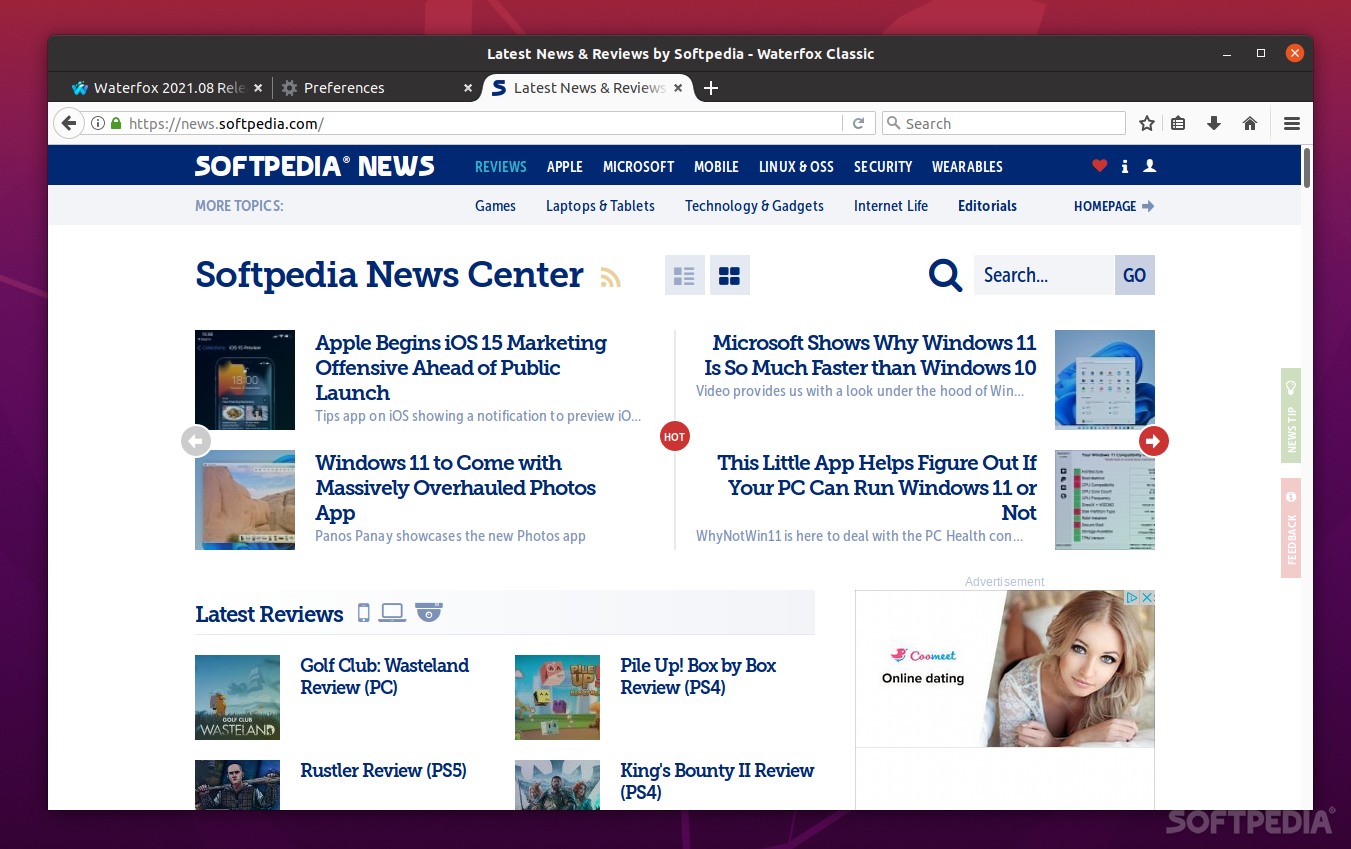

Enjoy enhanced privacy and above-average customization options by browsing the Internet with Waterfox
What’s new in Waterfox G3.2.6:
- CHANGED:
- Latest Mozilla Foundation Security Advisories patched.
Considering just how saturated the browser market is nowadays, it’s almost impossible for a newcomer to penetrate what seems to be an insurmountable wall of tools financed by big tech companies.
However, from time to time, browsers that offer something new or unique usually make it into the spotlight. This was also the fate of Waterfox, a Firefox-based browser built by Alex Kontos, a 16-year-old student (at the time, in 2011) .
How Waterfox rose to success
Waterfox quickly gained an impressive following because it used the 64-bit platform. Interestingly enough, even Firefox (from which Waterfox was forked), only officially supported 32-bit architectures at the time.
That was not all, over the years, Waterfox cemented its identity as a customizable and quick browser (a bit faster than Firefox, and most other browsers), as well as a privacy-focused browser, despite its somewhat non-aggressive stance on the matter.
The undisputed advantages of Waterfox
Even since the first days, Waterfox managed to be a bit faster than Firefox because it stripped all of Mozilla’s telemetry elements. While this was done primarily for speed, it also had some direct privacy benefits.
While this is still part of Waterfox’s identity even today, its main advantage is the fact that it supports all legacy plugins, most of which weren’t and still aren’t supported since the introduction of Firefox Quantum’s engine back in 2016.
What’s probably even more impressive is the fact that Waterfox also supports Chrome Web Store extensions, as well as Opera Store extensions, and, of course, Firefox Store extensions.
Waterfox defines itself as being an “ethical, user-oriented browser” that is all about the “balance of privacy and usability.” This means that Waterfox is not a full-blown privacy browser, and it’s also not the most customizable out there (since it still has to remain easy to use).
However, it does make a compelling case for itself thanks to a healthy Privacy Policy, and enough customization features to keep power users and new users happy (one example is the movable tab bar which can be placed above or below the address bar, or at the bottom of the window).
https://www.waterfox.net/privacy/
So, it’s all good, right?
Waterfox stood the test of time valiantly. Coming from humble beginnings, Waterfox was one of the first widely distributed 64-bit browsers, and did a good job at staying an “ethical” browser for nearly 10 years.
It’s definitely a good browser with various unique quirks, and it’s one of the better maintained Firefox forks out there. However, its future might be somewhat uncertain.
In 2020, Waterfox was acquired by System1, a US-based advertising company. Of course, not all ad companies are the “spawns of Satan himself,” but the real question is the main motivation behind this acquisition.
Nevertheless, things look fine, for now at least (as “Alex Kontos is still leading the direction of Waterfox and will be for the foreseeable future”). At the end of the day, you’ll have to assess the level of trust in regard to System1 while using Waterfox, or you know, “ignorance is bliss.” It’s your call.
